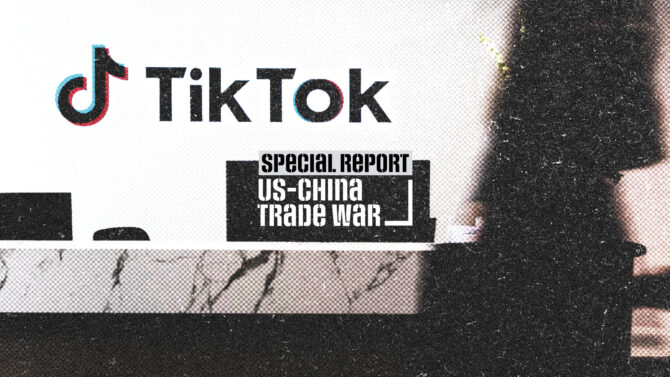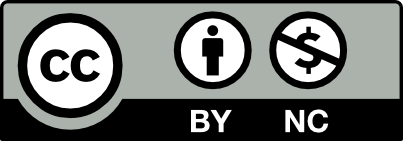Journalists, TikTokers and politicians talk to iMEdD about Edi Rama’s decision, just two months before the elections.
“I have to explain to foreign brands that I cannot post on TikTok because the platform is blocked in Albania.”
Elvi Nuhu, 27, is a content creator in Tirana. Having amassed 115,000 followers on TikTok, he makes a living from social media. Speaking to iMEdD, he sounds a bit anxious.
“The biggest problem is with foreign brands that want to sponsor their products or services on my TikTok. Because maybe foreign brands don’t know the situation in Albania,” he explains.
In early March, the Albanian government announced a year-long ban on TikTok, citing concerns over protecting minors from violent content and hate speech. The government decision began to be implemented gradually after March 13.
Opposition politicians in Albania, civil society members, and journalists who spoke to iMEdD argue that Prime Minister Edi Rama’s real objective is to silence government critics and manipulate the upcoming elections in May.

In a country of 2.7 million people, TikTok users are estimated at around 1.5 million, making the platform’s content highly influential.
Faced with these new restrictions, Elvi Nuhu, who holds a degree in Computer Science and has a background in television, has spent recent weeks searching for ways to maintain his income, which largely depends on the content he posts on the platform.
“The only thing that I can do is keep using TikTok through a VPN. If enough Albanians use VPNs, they’ll still be able to see my posts if they want to,” the young TikToker says.
The “Dark” Greek Telegram

The encrypted messaging platform appears to be revising its policy of cooperating with law enforcement. The latest data for Greece.
Albanian Prime Minister Eddie Rama had signaled his intention to blacklist the Chinese-owned platform as early as last December. Just weeks earlier, a 14-year-old boy had been fatally stabbed by a classmate after the two had first exchanged threats on social media.
The murder shocked Albania and although neither the perpetrator nor the victim had a TikTok account, the incident sparked a strong reaction from teachers and parents’ associations, who called for the platform to be shut down.
In early March the Albanian National Cyber Security Authority (AKSK) instructed all internet providers in Albania to confirm in writing that they would block access to TikTok. Albania’s Minister of Education, Ogerta Manastirliu, confirmed that the ban would be imposed “in a few days, maybe a week” and that the 12-month restriction “will allow all the necessary time to take measures in coordination with representatives of the TikTok platform.”
According to Manastirliu, Albanian authorities held 1,300 meetings with 65,000 parents, who “recommended and were in favor of closing or imposing limits on the TikTok platform.” Manastirliu did not respond to written questions from iMEdD.
Brenton Bënja, is a technology journalist and founder of the website Geek Room Albania. As he notes, the ban on TikTok is effectively enforced by requiring internet providers to block all websites owned by ByteDance, the Chinese company behind TikTok.
“Providers have blocked access both on the web (tiktok.com) and the app,” Bënja wrote in a WhatsaApp message.
He dismisses the government’s justification that the ban protects minors from violent content. “The same violence is also seen on Snapchat and Telegram,” he says, adding that the platform collaborates with content managers in Albania and local authorities to identify inappropriate content.
“Lately, if you posted a video on TikTok from Albania, it would stay ‘under review’ for a few minutes before going public. On the other hand, TikTok lacks automatic language moderation. This leaves room for hate speech to spread easily, as the system does not understand the Albanian language – especially when used in dialects.”

The tech journalism website Geek Room has 80,000 followers on TikTok. “The ban will strongly affect our reach, just as it will for thousands of Albanian businesses that use the perfect algorithm to reach a wider audience,” Bënja says. “Blocking it is not the best solution.”
Denisa Lidia Bairaktari is a journalist of Albanian origin who lives and works in Athens. She describes the Albanian government’s decision as authoritarian, although she acknowledges that it enjoys considerable support in the country.
“I attribute it to the so-called ‘common sentiment.’ Such decisions, at least initially, may appeal to those who favor decisive leaders, based on what I’ve seen in comments on social media- especially from parents of students in Albania and people in general who may not think twice before posting online. They might write more out of emotion than logic,” Denisa notes. “But here, we have silencing, with no in-depth prior discussion and no alternatives sought.”
The Association of Professional Journalists of Albania, BIRN Albania and the Centre for Legal Empowerment, a civil rights organization, have appealed to the Constitutional Court, asking for the TikTok ban in Albania to be declared unconstitutional.
TikTok: US vs China and Trump in the middle

Why did Joe Biden call for a ban on a social media platform? To what extent is the national security of the US threatened by TikTok, and what would the implications of Donald Trump’s reelection be? What is the response of the Chinese company that owns TikTok to iMEdD’s inquiry?
The Elections
Socialist Edi Rama has ruled Albania continuously since 2013, despite having faced several serious allegations of corruption and authoritarianism. The US State Department’s latest Human Rights Report (published in April 2024) notes that citizens in Albania are free to criticize the government, both in traditional media and online.
“Nevertheless, concern persisted that open criticism of the government could have adverse consequences […] Politicians used established media to spread fake news regarding rivals and critics,” the report notes.
At the same time, Albania ranks 99th out of 180 countries on RSF’s international press freedom index. “Journalists face political pressure, especially during elections,” RSF notes. Albania’s next elections are scheduled for May 11.
Blerjana Bino, co-founder of the “Center for Science and Innovation for Development – SCiDEV”, a Tirana-based think tank, offers a political perspective on the issue.
“I think the decision was made as a last attempt (by the government) to influence and control the digital space and further monopolize the public narrative in Albania,” she notes. “The main political actors basically control the mainstream media. They are very comfortable on Facebook as well as on Instagram – let’s call them the older versions of social platforms. New critical voices, new political movements and individuals that are running for elections in May were gaining traction on TikTok […] We don’t have the data, but logically, it makes sense.”
Bino goes on to explain that the decision directly impacts freedom of expression, especially for watchdogs and journalists. “This is also kind of a message, like ‘Be careful otherwise we could do the same with any other platform,’” she says. “It’s also another way of diverting attention from other, more important issues of public interest in the country, considering what is happening with the anti-corruption investigations, the arrest of the mayor of Tirana (related to a corruption case) […] The situation is highly polarized.”
At the same time, the opposition and civil society organizations claim that the government plans to force mobile phone companies and internet providers to use Deep Packet Inspection (DPI), technology to technically achieve TikTok’s shutdown. If confirmed, it raises serious concerns about the security and privacy of communications. The government has not directly commented on these allegations.
Meanwhile, the elections are approaching. Arlind Qori is the head of Lëvizja Bashkë (“Together Movement”), a new left-wing party in Albania. “New parties like ours are very popular on social media, especially on TikTok. I have one of the most-followed TikTok accounts among politicians in Albania – 50Κ followers and 1.3 million likes,” Qori told iMEdD.
“Traditional media are not very open to us. We get very little access on national television. So, social media, and especially TikTok, has been our main way to communicate with the broad public. These are political reasons behind the TikTok ban.”
In addition to connections, smaller parties lack the funds to pay for listings. “The TikTok algorithm is much more popular and much more horizontal, or democratic, than other social media platforms, at least when it comes to popularizing your content. It is a very important step for our fragile democracy.”

